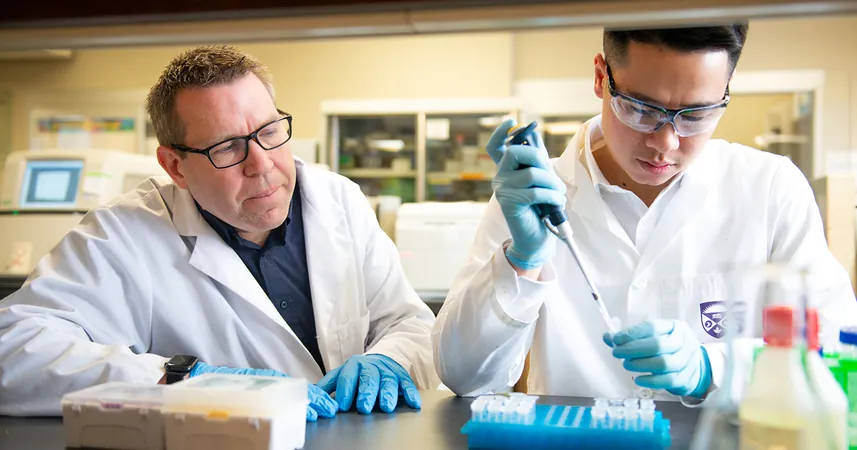
Omega-3: The Surprising Ally Against THC's Harmful Effects on Unborn Babies?
2025-04-01
Author: Benjamin
Introduction
Recent groundbreaking research from Schulich Medicine & Dentistry sheds light on a potential solution for mitigating the adverse effects of cannabis during pregnancy. The study, led by esteemed researchers Dan Hardy and Kendrick Lee, explores how Omega-3 fatty acids could counteract the damaging consequences of Tetrahydrocannabinol (THC)—the psychoactive component of cannabis known to negatively impact fetal development.
Previous Research
Past studies have established that THC exposure in utero is linked to lower birth weights and heart complications in newborn animal offspring. However, this latest research presents a beacon of hope, suggesting that Omega-3 supplementation might hold the key to preventing these adverse outcomes.
Significant Findings
Published in the influential journal Scientific Reports, the findings are particularly compelling. Using rat models, the researchers discovered that heart deficits associated with THC exposure were effectively countered by Omega-3 supplementation during pregnancy and for three weeks postpartum. This marks a significant advancement in understanding fetal health, as it builds upon earlier studies that demonstrated THC's detrimental impact on key cardiovascular functions, such as stroke volume and cardiac output.
Positive Implications
Dr. Dan Hardy emphasized the study's positive implications: “When we provided the animal models with an Omega-3-rich diet, we observed prevention of low birth weight outcomes and, crucially, protection against early cardiac dysfunction.” The essential omega fatty acids—DHA and EPA—are renowned for their vital role in fetal growth and cardiac health, making Omega-3 a well-regarded supplement for expectant mothers.
Accessibility and Feasibility
What’s particularly intriguing about this research is its accessibility. Omega-3 fatty acids are widely available and known to benefit not just fetal development, but also protect against gestational diabetes—positioning them as a feasible intervention for pregnant women. Kendrick Lee, the study's first author, remarked on the critical nature of these findings: "While the most effective way to avoid these health risks is to abstain from cannabis altogether, our study opens the door to the possibility of nutritional intervention for those who have been unintentionally exposed."
Public Health Implications
The importance of this research cannot be overstated, with potential ramifications for public health policies concerning cannabis use during pregnancy. As more women turn to cannabis for various reasons, understanding its impacts and exploring interventions like Omega-3 supplementation could be vital for safeguarding the health of future generations.
Conclusion
As we stand at the intersection of cannabis research and nutrition science, this study promises to inspire further exploration into how dietary choices can mitigate risks associated with drug exposure during critical stages of development. The implications for maternal and fetal health are profound, and this pioneering research may spark a much-needed dialogue about best practices in prenatal care.









 Brasil (PT)
Brasil (PT)
 Canada (EN)
Canada (EN)
 Chile (ES)
Chile (ES)
 Česko (CS)
Česko (CS)
 대한민국 (KO)
대한민국 (KO)
 España (ES)
España (ES)
 France (FR)
France (FR)
 Hong Kong (EN)
Hong Kong (EN)
 Italia (IT)
Italia (IT)
 日本 (JA)
日本 (JA)
 Magyarország (HU)
Magyarország (HU)
 Norge (NO)
Norge (NO)
 Polska (PL)
Polska (PL)
 Schweiz (DE)
Schweiz (DE)
 Singapore (EN)
Singapore (EN)
 Sverige (SV)
Sverige (SV)
 Suomi (FI)
Suomi (FI)
 Türkiye (TR)
Türkiye (TR)
 الإمارات العربية المتحدة (AR)
الإمارات العربية المتحدة (AR)